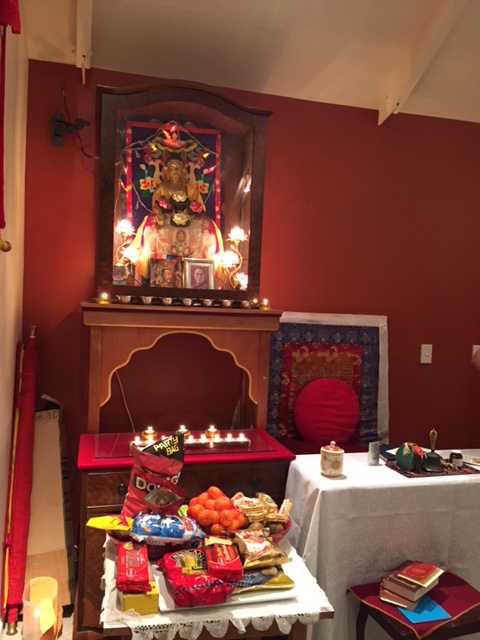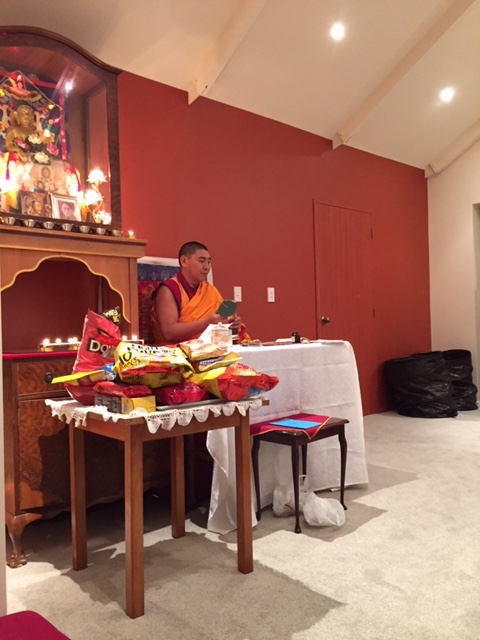[From Geshela, 19 July 2015]
As Buddhists, we believe in future lives and rebirths. When we say prayers, we accumulate merits or good karma and we confess or purify negative karma for a better rebirth or the benefit of future lives. Also, we do dedication prayers after that so all the prayers are sealed off and to dedicate the good karma for our future lives and for others.
When we accumulate merits, if it’s not sealed off with a great dedication that good karma can instantly be lost through anger. So when the accumulation of good karma is sealed off with a dedication, then it’s secured and stored in a safe place so negative emotions cannot make it vanish.

Tsog offerings
We have two tsog offerings each month. Buddhists in general, and particularly those who have taken tantric vows, do tsog offerings on the 10th and 25th of the lunar calendar because of the commitment we have made through taking empowerment or an initiation of tantrayana. With these tsog offerings, we reconnect ourselves to those deities. In simple terms, we basically invite them to the table and dine together.
The lamas, deities, buddhas and bodhisattvas all come to dine with us, and in this calendar of tsog offerings, a night also counts as a day as well. So 24 hours is two days, not a night and a day. So when you reach the 15th of that month, it is actually the 30th, in other words, one complete month. At this time, our channels, and the drops of the body or the energy of the body cause the month to come to a peak of energy. Because of that energy, that’s the special time for dakas and dakinis and deities to pass their attainments to the disciples or meditators. So that’s why we do this tsog offering on the special occasion of dakas and dakinis gathering based on their attainments. And that’s why we do it two times a month, because a day and night is actually two days.
On that special occasion dakas and dakinis serve as a message conveyor or translator and ask the deities to bring attainments to the disciples or practitioners. The gathering consists of lamas, deities, buddhas, dakas, dakinis and dharma protectors.
There are eight special occasions on Buddha calendars, and tomorrow (20 July) is the special occasion of the turning of the wheel of dharma. If we do a good deed or accumulate a good karma tomorrow, a single good karma, it will be multiplied by 100,000 times.

Geshela leading Puja prayers
Tsog offerings are done on the 10th and 25th of the lunar calendar. When we take initiations or empowerment, we have made a commitment to do those pujas on those special dates, and if we don’t do that and we break the commitment it can create obstacles for dharma practice.
The other benefit is that when we take refuge vows (precepts of refuge) we made a commitment to make offerings of the first part of whatever we eat or drink to the buddhas, that is, to the object of refuge. So when we do tsog offerings, we also renew that commitment of the refuge precept. So if we haven’t managed to make that offering as we promised to the 3 jewels, then it’s a day of renewal, a big offering on one occasion.
A small failure of commitment cannot be neglected because an accumulation of small failures can add up to a big failure of commitment. So when we do a tsog offering, it’s a time to purify the small downfalls that we commit.
[For people who have not taken refuge or tantric vows]
They can partake in the tsog as just a simple offering to higher beings, but they won’t accumulate the same amount of merits compared to the people who have vows and commitments. They are welcome to participate as a symbolic offering, but won’t achieve the same attainments.





